I can’t think of anyone who likes mosquitoes These are nasty bugs who make no qualms about zeroing in on any part of your body as if it were a restaurant for a quick feed.
There are hundreds of mosquito repelling products out there now. Many contain chemicals to help you defend yourself and your living space.
But if you prefer to find a natural, green alternative, know that there are many houseplants that can help keep mosquitoes away and some of these are easily cultivated indoors.
In this article, we’ll look at the best indoor plants that repel mosquitoes. But let’s first take a look at the threats of being bitten by mosquitoes other than red bumps.
The Mosquito Threat
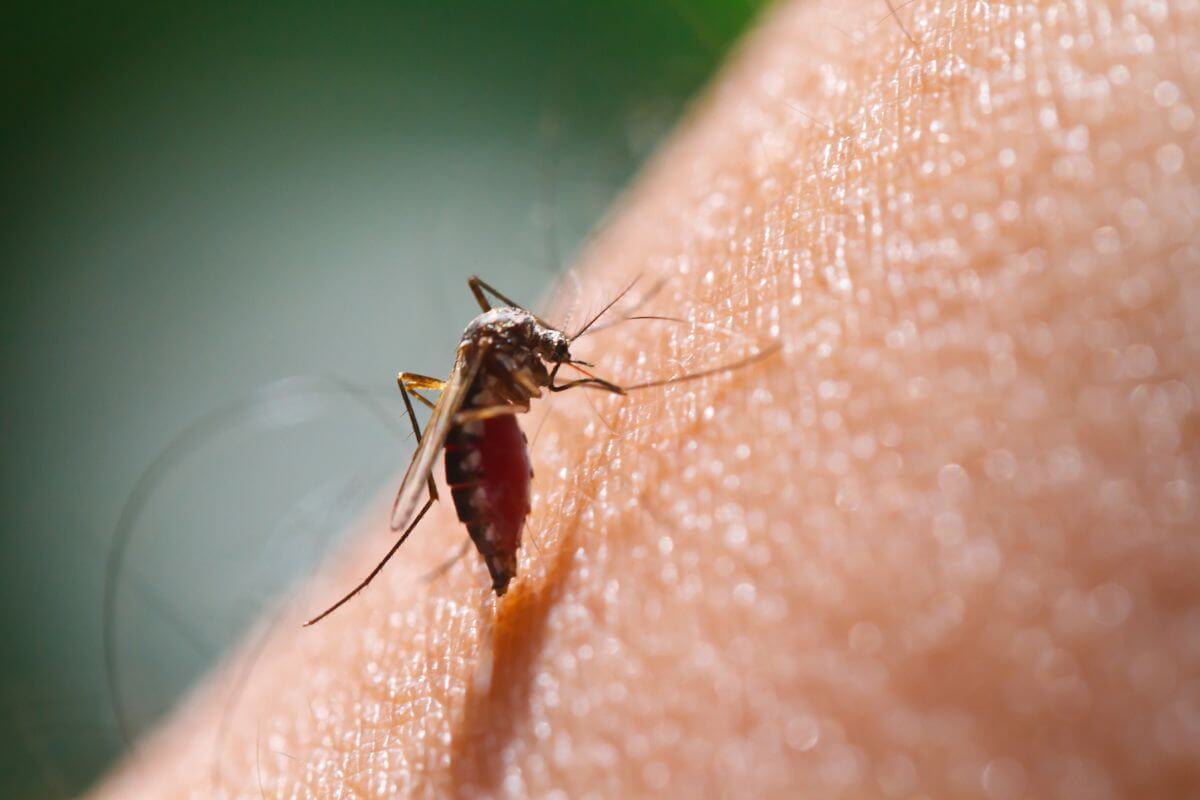
It isn’t enough that these bugs are bothersome and irritating, they are also harbingers of diseases.
For the most part, you’ll find yourself with large angry red bumps that itch and may bleed if you scratch long enough.
Some people might also suffer from allergies to mosquito bites, meaning these bumps swell even larger and become an angrier red.
But that isn’t the worst of it. According to scientists, mosquito-borne diseases, transmitted through the bite of an infected mosquito include several potentially fatal illnesses. These include:
- Chikungunya Virus
- Dengue
- Eastern Equine Encephalitis Virus
- Japanese Encephalitis Virus
- La Crosse Encephalitis
- Malaria
- Louis Encephalitis
- West Nile Virus
- Yellow Fever
- Zika Virus
Apart from attempting to keep mosquitoes outdoors with window and door screens, the use of mosquito repellent is the go-to solution when combatting these pests.
A Green Alternative
Many people, however, prefer to avoid chemicals to repel mosquitoes. Reasons are both for health reasons and for conviction.
I also prefer to opt for natural green solutions because you don’t always know the long-term side effects from the chemicals that are used to try and keep mosquitoes at bay.
Do Mosquito Repellent Plants Exist?
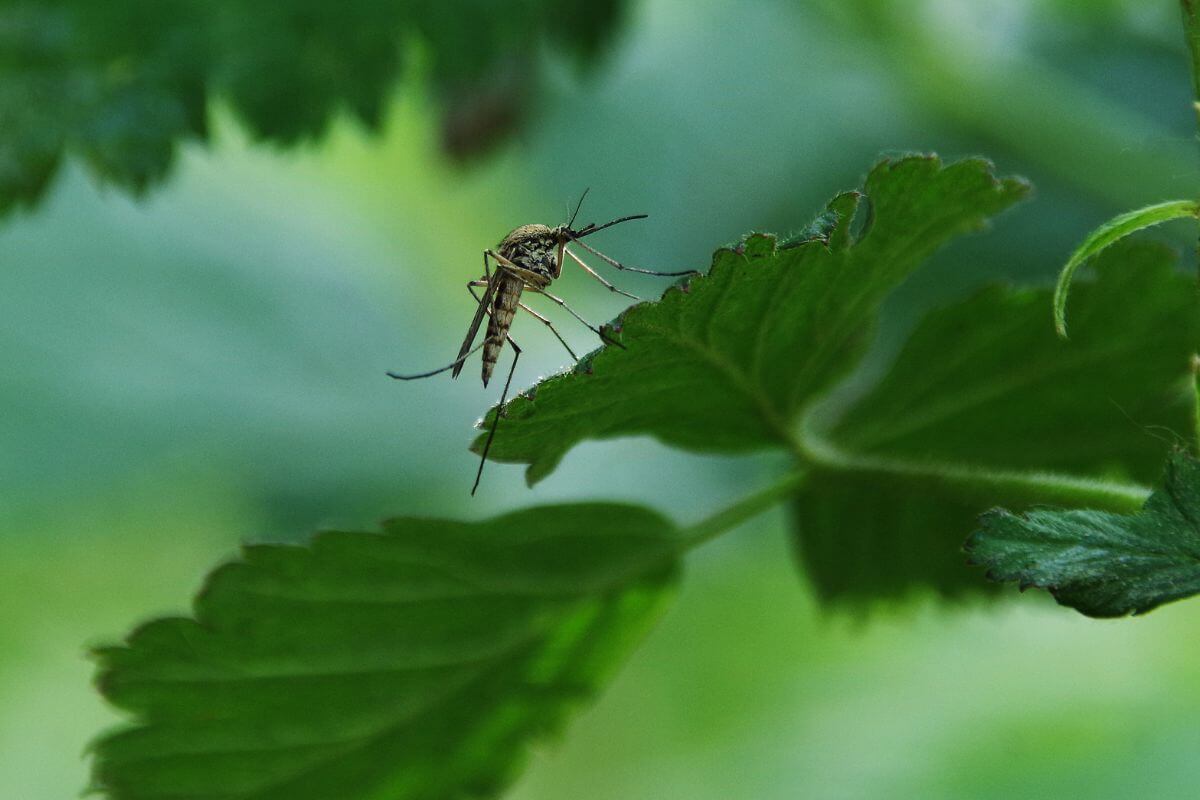
They most certainly do, and you can create your own line of defense by surrounding yourself with repellent plants.
One advantage in fighting these flying fiends is that they don’t like fragrant plants, even though we do. A number of scents or essential oils extracted from certain plants may even be toxic to the little buggers.
Our 11 Best Indoor Plants That Repel Mosquitoes
The list of indoor mosquito repellant plants are split into two categories: plants for a kitchen garden, like herbs, and other plants for aesthetics and aromas, like flowers.
The Kitchen Garden
Several of these indoor plants can be cultivated in your kitchen on a windowsill. Not only will they decorate your kitchen space nicely, but you’ll have your own supply of fresh herbs from your very own indoor herb garden for all your cooking endeavors.
1. Basil (Ocimum basilicum)
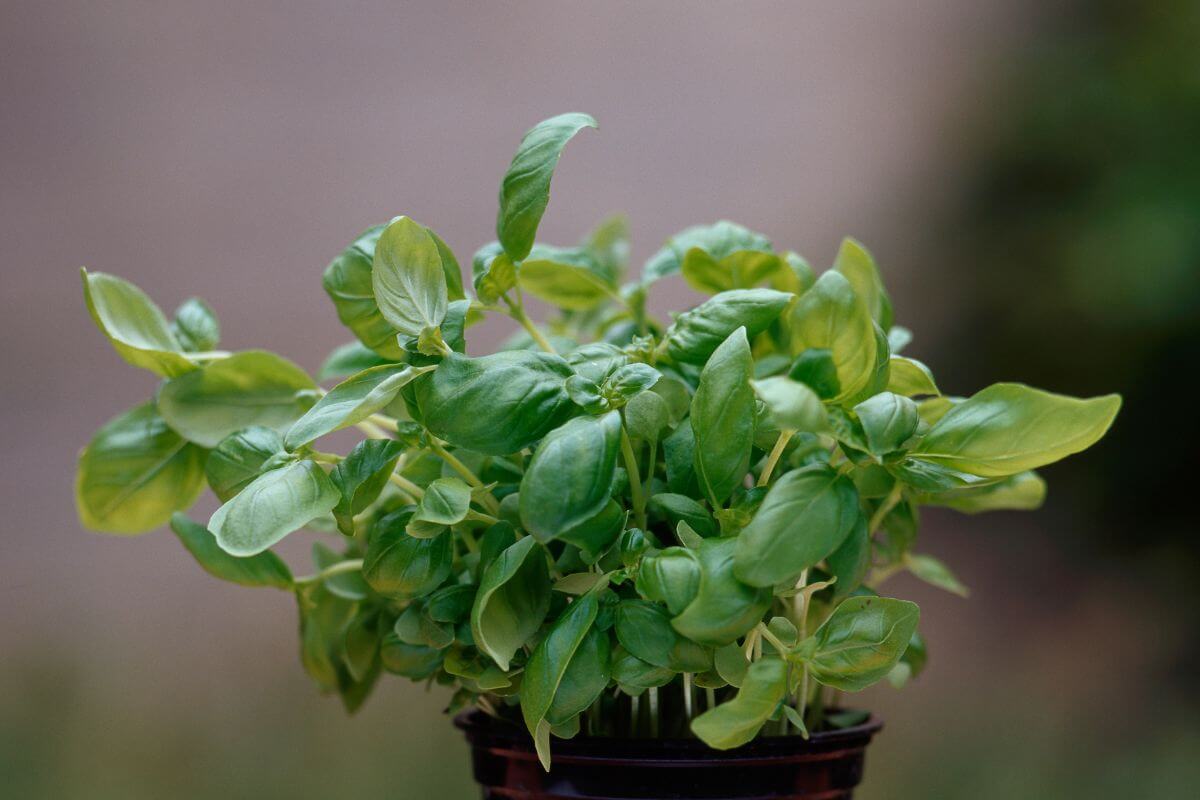
Basil is a lovely fresh-smelling, tasty herb to cultivate. It is a fast-growing herb. Because it produces a strong scent on its own, it won’t require any crushing or chopping to enjoy mosquito fighting benefits.
Basil will thrive on a sunny windowsill. It also has been shown to be toxic to mosquito larvae so you can nip an infestation in the bud.
2. Garlic (Allium sativum)
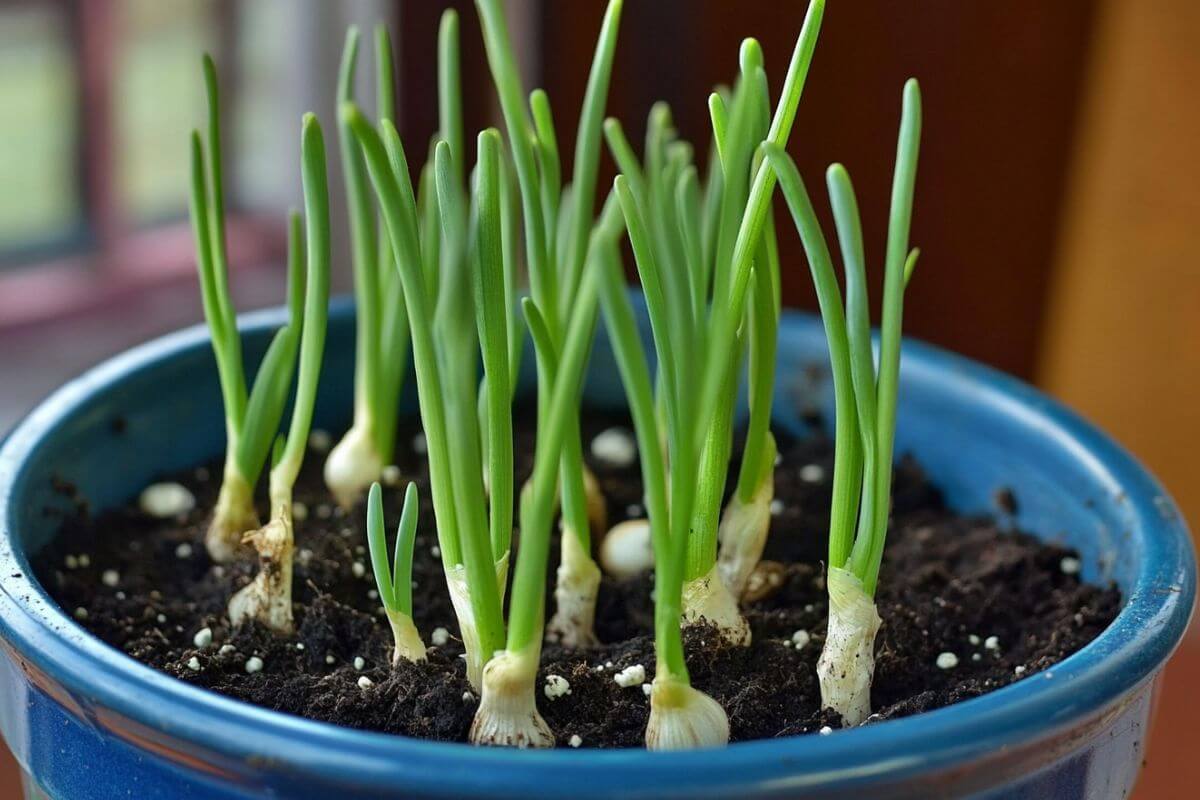
While not the strongest mosquito repellent on this list, it does do some repelling for its pungent smell towards mosquitoes. If you love garlic in your food, that’s another great reason to cultivate it.
In fact, if you eat a bit of fresh garlic, it may provide you with a minimum of mosquito repellent from the inside out.
To grow your own garlic, place three to four cloves in a pot with potting soil. Water lightly and position your garlic on a sunny windowsill. You’ll have garlic greens in seven to ten days.
3. Lemon Balm (Melissa Officinalis)
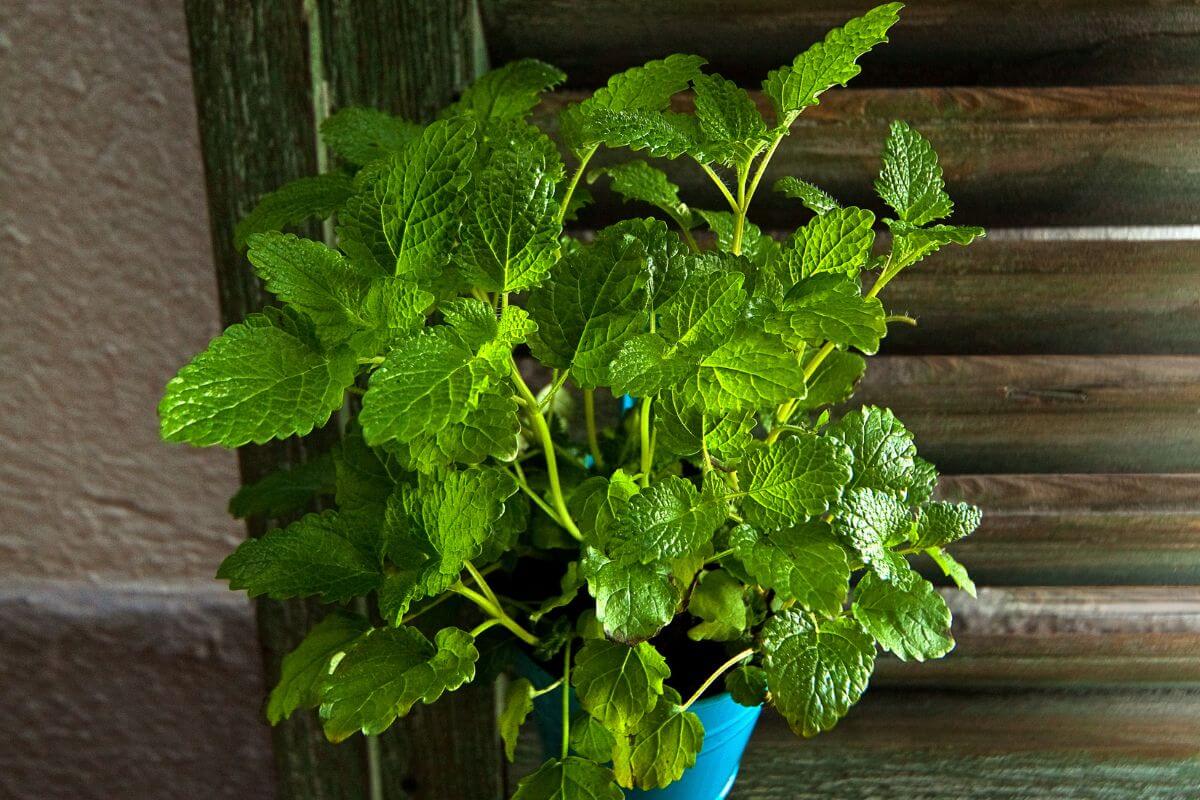
Lemon Balm is another mosquito-repelling plant that can be grown indoors and outdoors. If you prune your plant regularly, it will release the plants oils which resist mosquitoes.
This herb can be used in teas, salad dressings, and even pesto sauce for pasta or other delicacies.
4. Mint (Mentha)
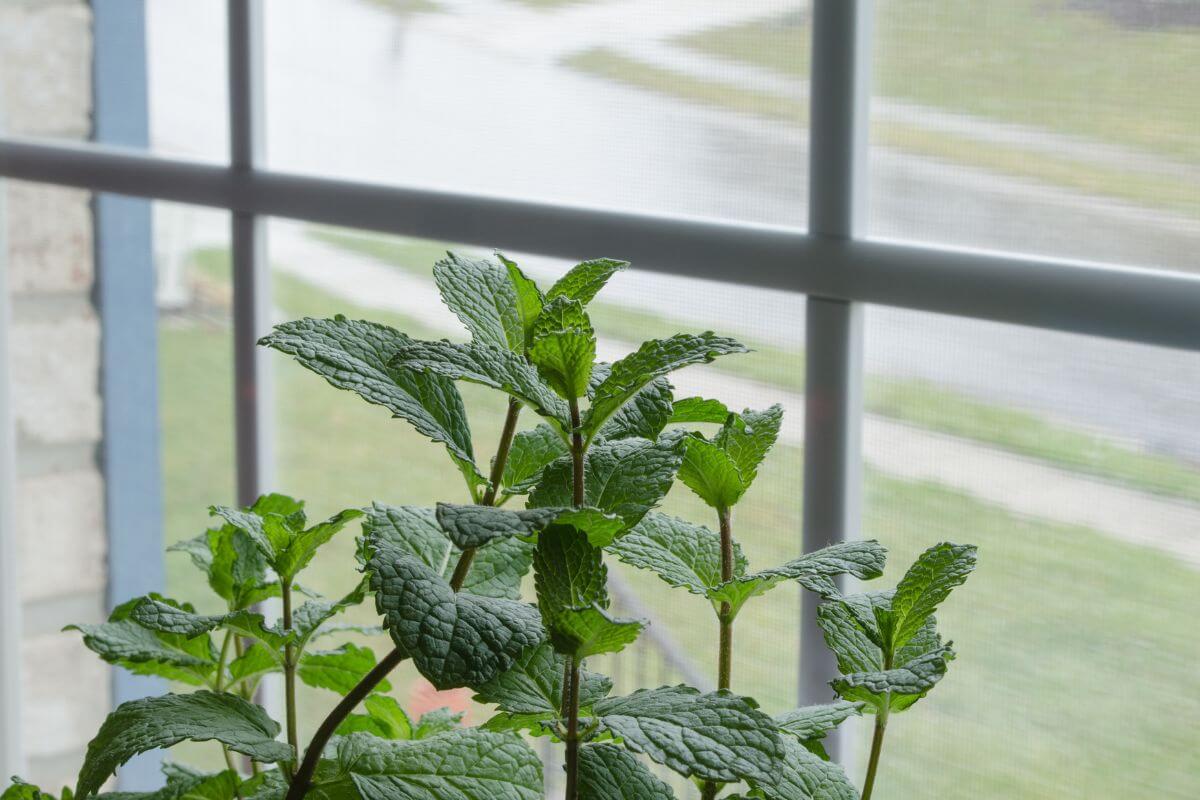
The Mint herb has a strong smell that mosquitoes hate. Research has shown that by rubbing mint oil on your skin, you will enjoy some protection.
As an aggressive invasive plant, even when growing it indoors in containers, it will require pruning regularly. They grow quickly, but the good thing is they can also be used in numerous appetizing dishes and beverages.
5. Rosemary (Rosmarinus officinalis)
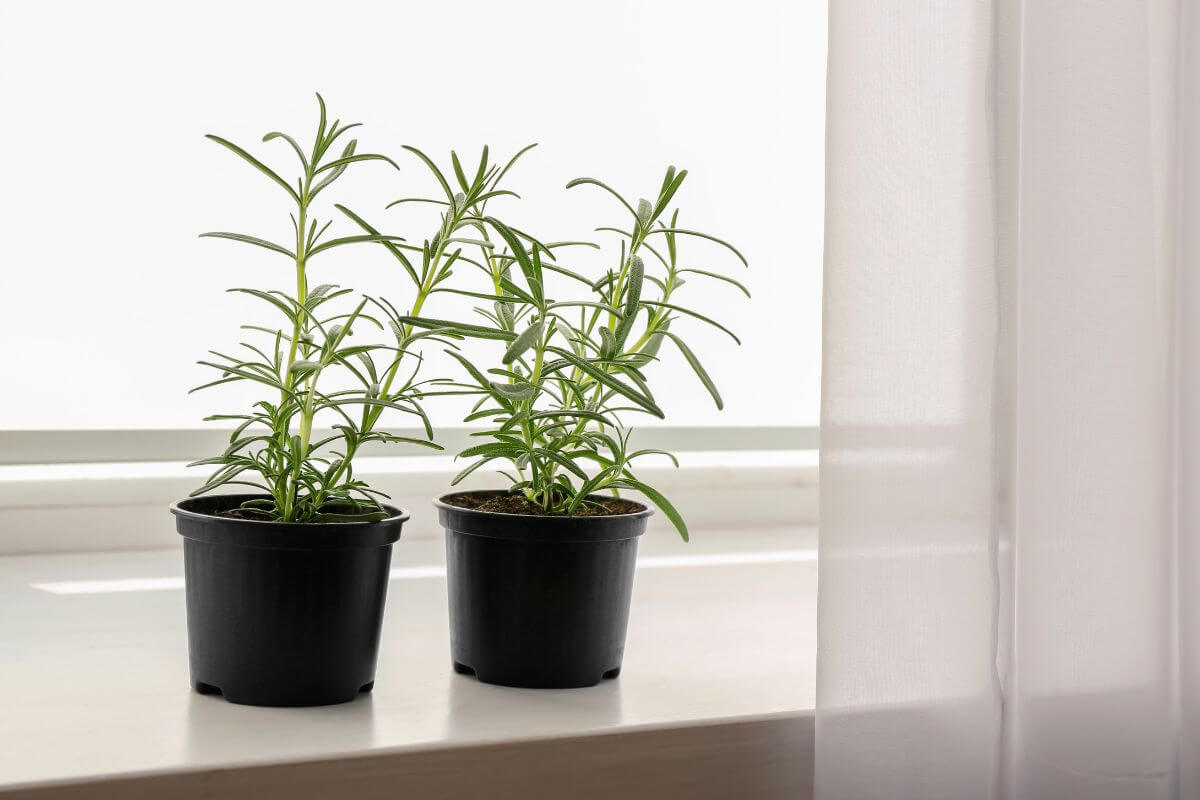
An attractive plant to include in your indoor herb garden, rosemary is a savory herb and contains a rosmarinic acid compound that naturally deters mosquitoes from visiting.
While it thrives in warmer climates, it does just as well in about any climate, including indoors. It can be burned to help keep insects at a distance.
Rosemary pairs great with tarragon to keep insects away.
6. Sage (Salvia officinalis)
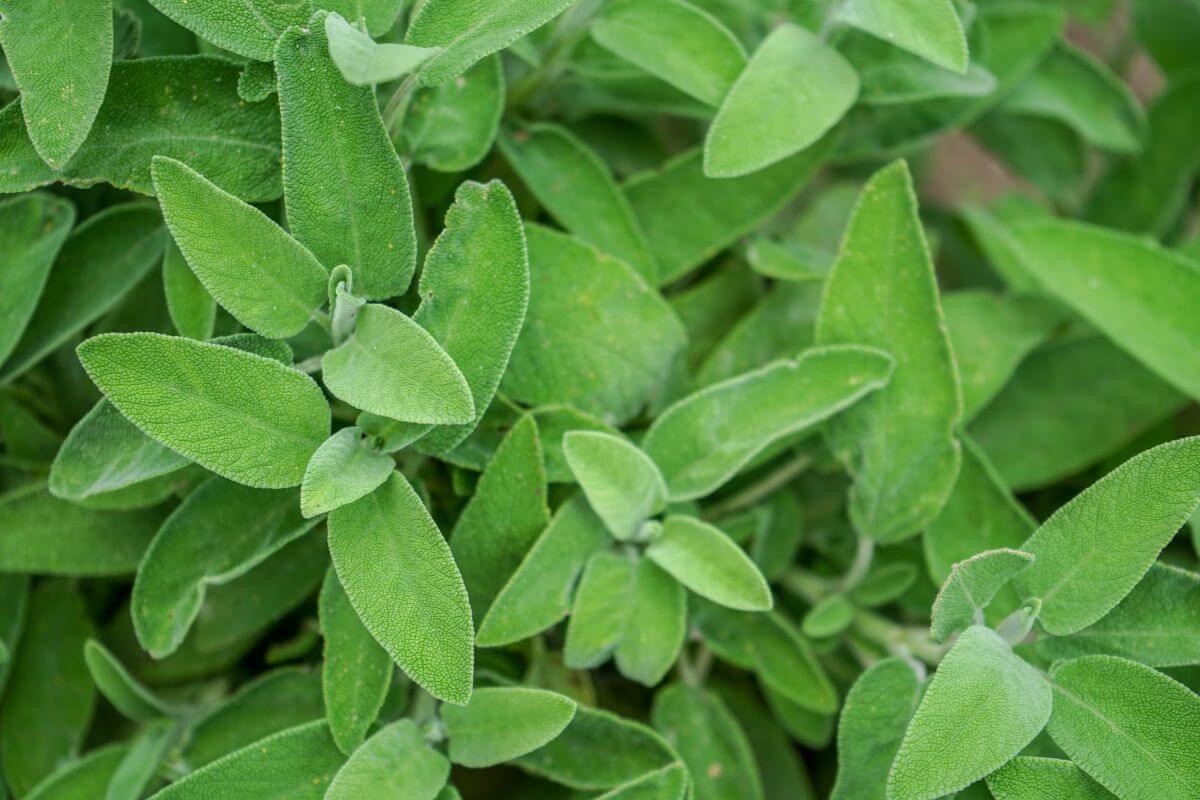
Another naturally strong mosquito repellent is sage because of the strong scent it emanates.
Leaves can be removed from the stems and crushed to release the scent or can be burnt. Burning is especially effective for keeping mosquitoes away. It contains the compound caryophyllene which assists in repelling bugs.
Sage plants appreciate sunlight and prefer their soil bed to be kept slightly moist.
Plants and Flowers that Repel Mosquitoes for your Indoor Garden
Not all indoor mosquito repellent plants can be consumed though. Some are more an ornamental plant, lovely and decorative, but at the same time, can assist in keeping mosquitoes away.
7. Catnip (Nepeta cataria)
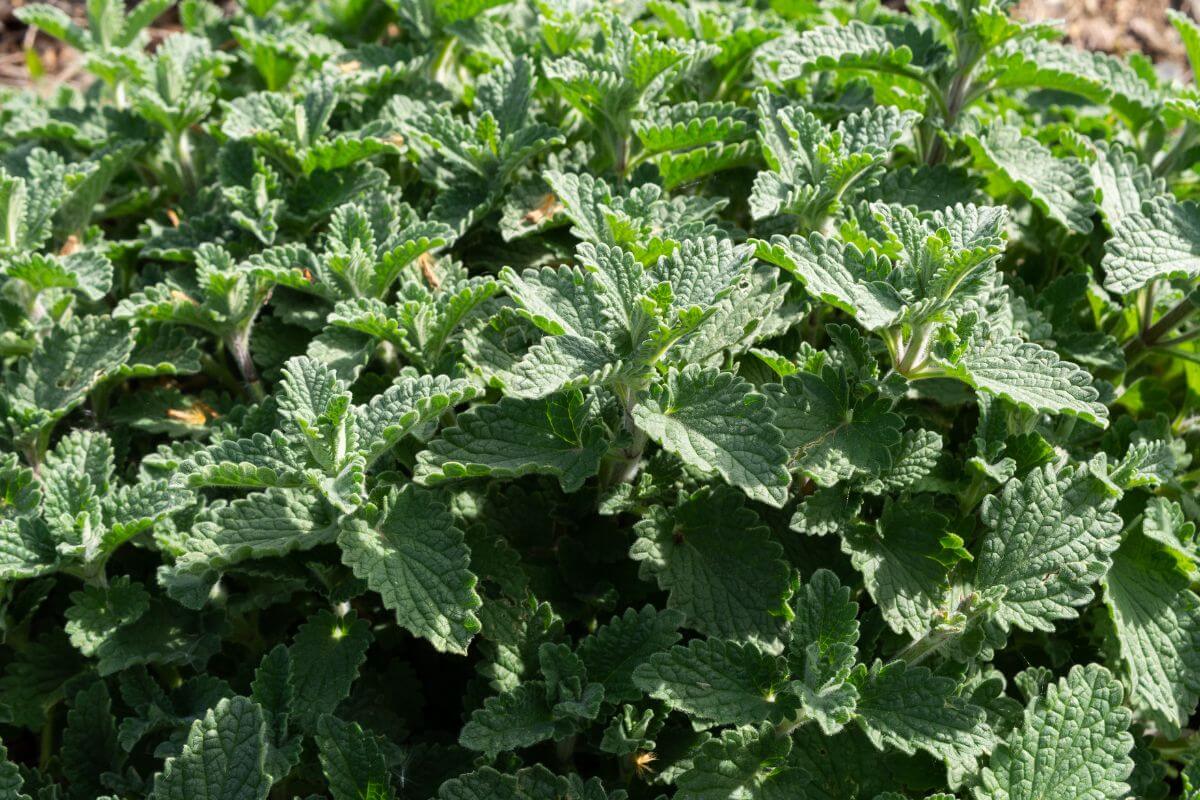
Apart from turning the family feline into a drunken sailor, Catnip works when fighting mosquitoes. It has been found to repel mosquitoes better than some harmful chemicals used for the purpose.
A member of the mint family, it can be invasive because they’re fast growers. It contains the compound Nepetalactone that attracts cats but at the same time repels mosquitoes.
Growing to heights of three to four feet, it only requires occasional watering. Catnip can be dried, flaked, and sprinkled to repel insects, as well as brewed as a tea.
8. Citronella (Cymbopogan)
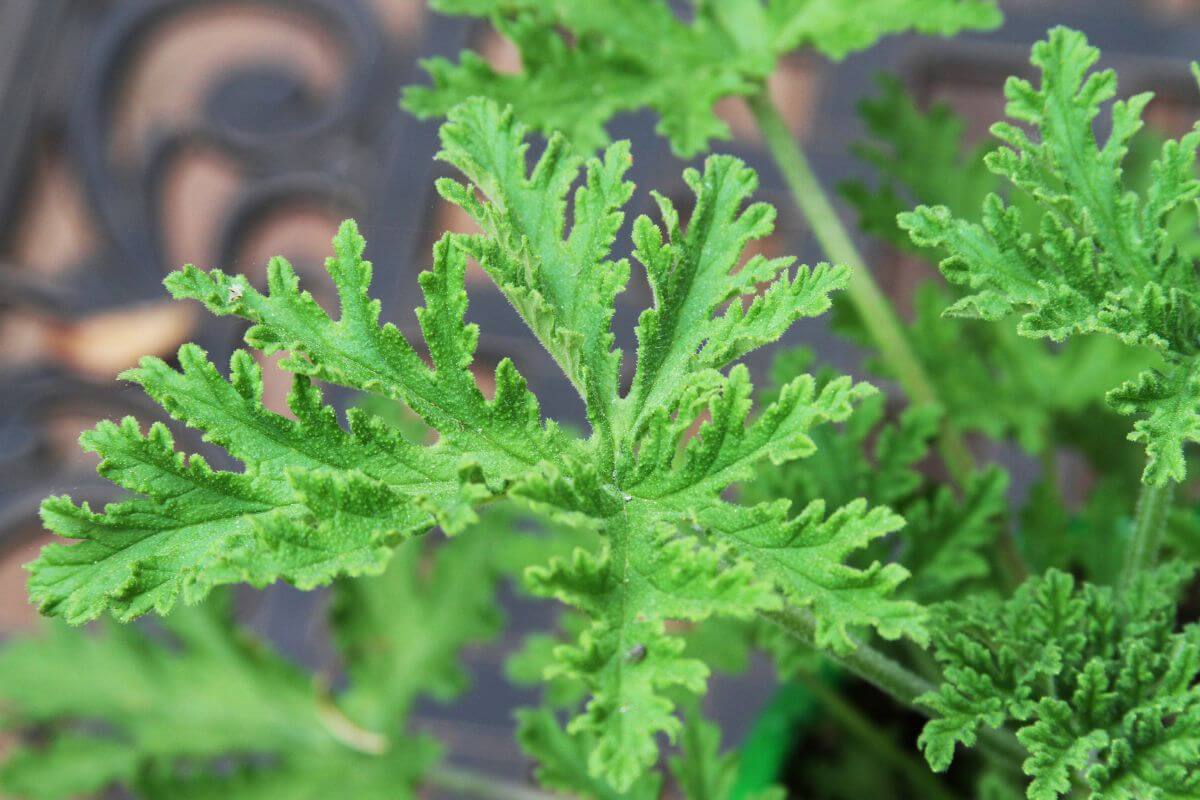
Citronella is used in numerous insect repellents, candles, and products to keep insects at a distance. Mosquitoes hate the lemon scent it produces. Usually cultivated outdoors, it is still a great, low-maintenance indoor plant.
The Citronella plant like bright sunlight, rich potting soil and the occasional watering to thrive. Sometimes referred to as lemongrass or Citronella grass, you don’t need a green thumb to cultivate it successfully.
9. Geraniums (Pelargonium)
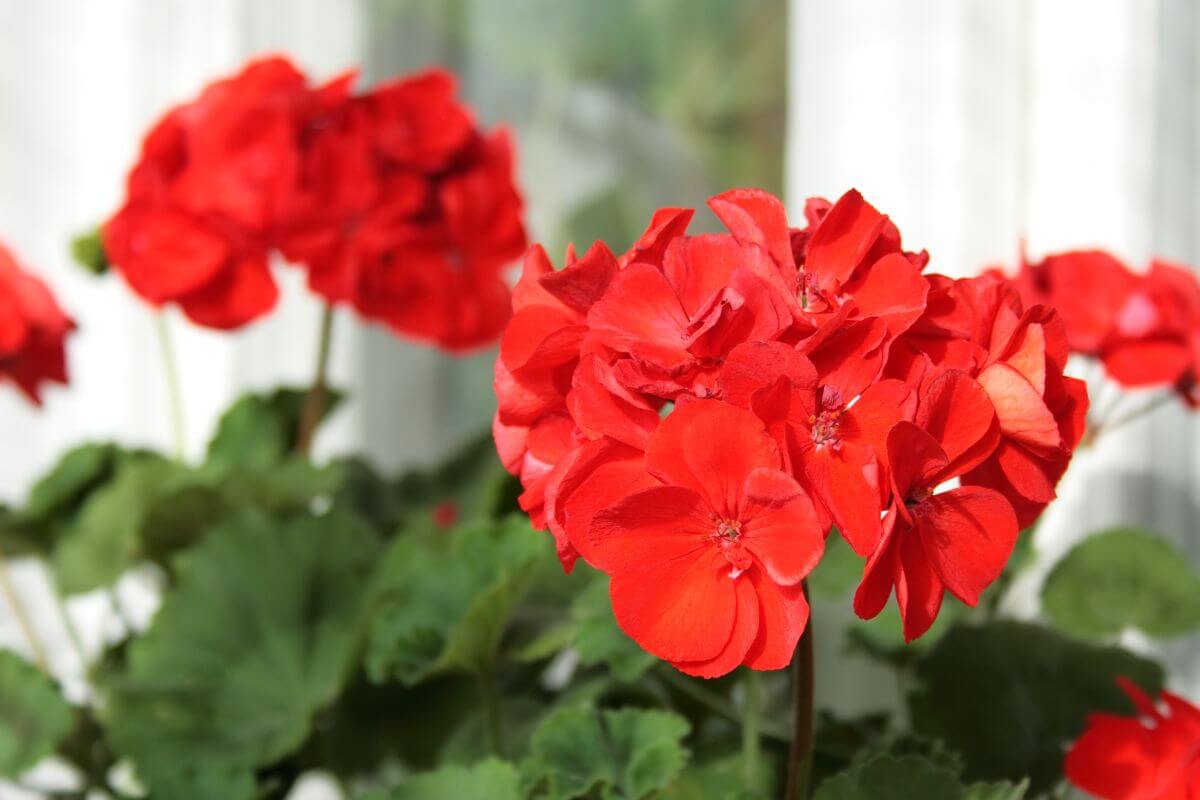
For pretty and perfume smells, choose scented geraniums. These flowers have a lemony odor that keeps mosquitoes far away.
Outdoors they like warmer, sunnier climates, but they do exceptionally well as potted plants and will most certainly add color to your home or office.
Geraniums are well-known to be easy to cultivate. When cultivating as a houseplant, it will need regular pruning as they will grow quickly.
10. Lavender (Lavandula)
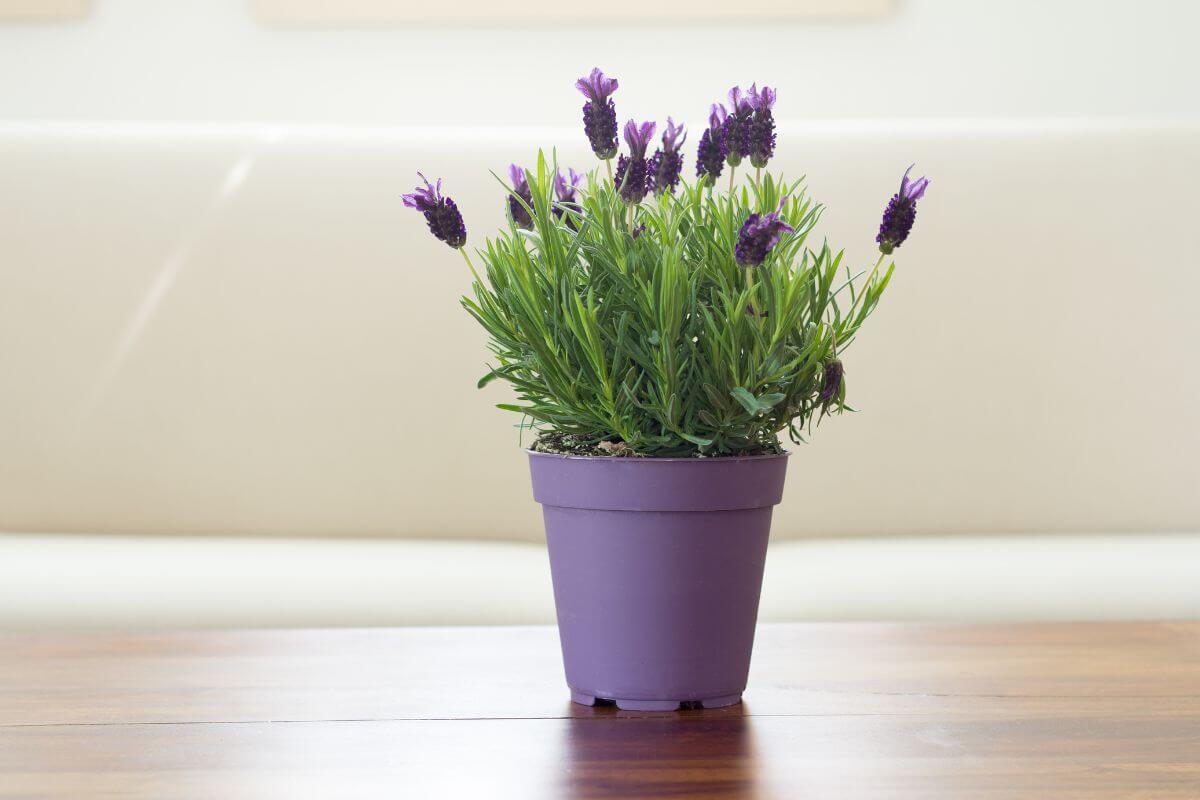
Known for its soothing scent, lavender is used in aroma therapy as well as being potpourri pouches for clothing and linen drawers. They are great air fresheners, but at the same time great mosquito plant repellers.
Lovely green stems with spikes of rich purple repel mosquitoes thanks to the smell and the fact that it contains terpene alcohol linalool. They like well-draining soil and generous sun.
Stems can be snipped to create miniature bouquets to repel insects. Lavender oil can be placed in a diffuser. Dried lavender flakes can be used in small bags to scent and repel and it can be crushed and applied to the skin.
11. Marigolds (Tagetes)
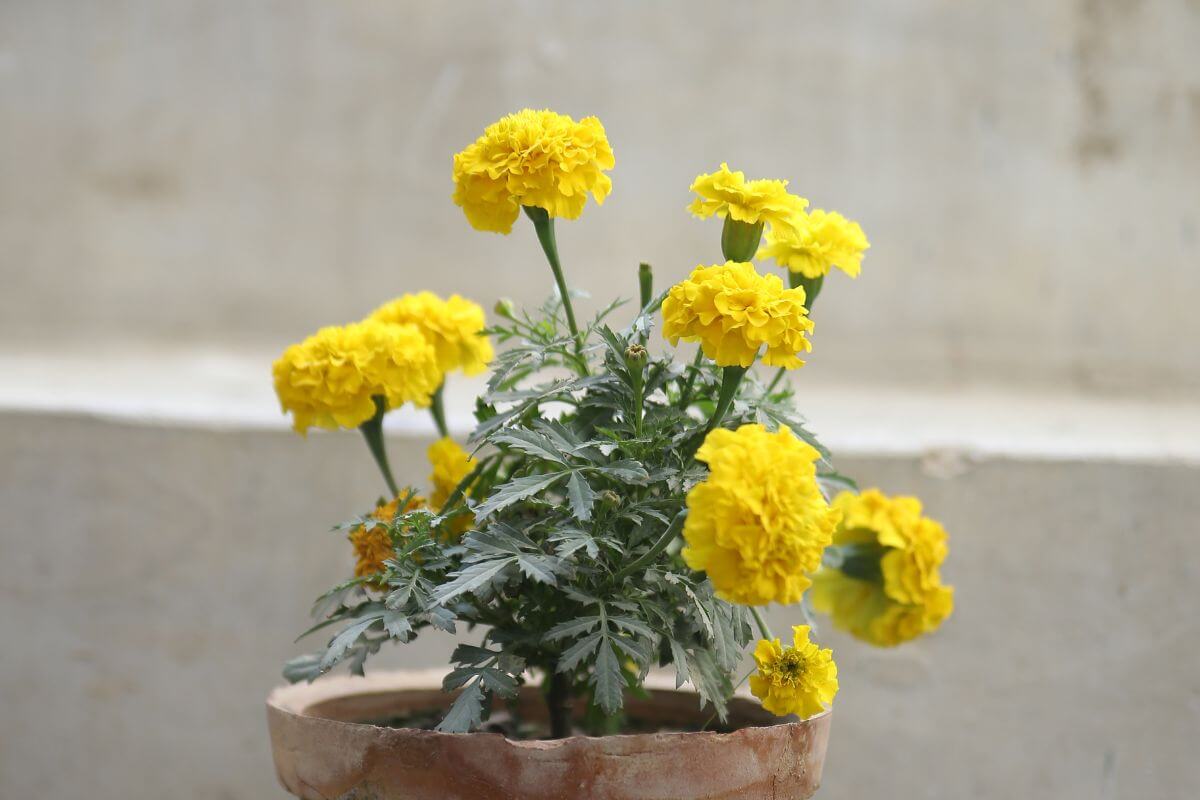
Marigolds are beautiful flowers whether cultivated in a flowerpot indoors or outdoors. These plants produce a light, unpleasant scent from the compound Pyrethrum that repels mosquitoes.
Roots are important because they repel nematodes due to the Limonene. Just place a flowerpot of marigolds by doors, windows, on tables, porches, balconies, decks, or patios to stay mosquito-free.
These Marigold blooms come in a variety of vivid colors and will add decorative flair to your living or working space. Marigolds need full sun and well-draining soil.
Care Tips for Indoor Plants to help Keep Mosquitoes Away
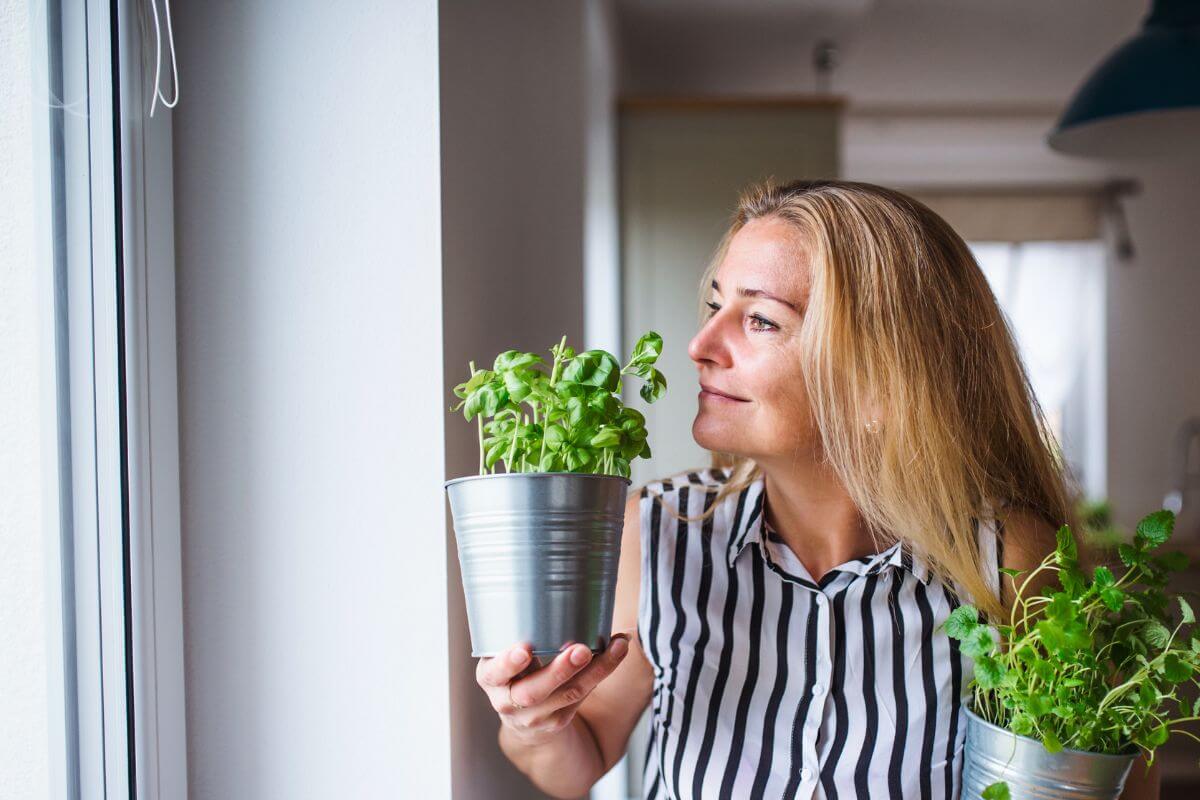
Every plant has its own needs, so it is important to learn about the plant that you are cultivating.
Learn as much as you can about a your variety of plants. Learn about different soil types, sunlight requirements, preferred temperatures, and watering needs.
Plants Pots and Containers for Indoor Plants to Repel Mosquitoes
Select a plant pot with good drainage to avoid stagnant water and waterlogged soil. Pots need holes in the bottom, so excess water can be drained.
Size is also a consideration. Pots that are too small will cause plants to become rootbound which can be lethal. If the pots are too large, the water will stay too wet because plant roots won’t be able to reach all the soil.
Soil for Plants to Repel Mosquitoes
Good quality potting mix will make a difference. Do not use garden soil from your yard as it may contain insects, fungus, or bacteria.
Water for Indoor Plants to Repel Mosquitoes
Moderation is the rule in watering. Too much water will drown plant roots, too little water will cause the plant to wither and die.
Test the soil with your finger by sticking your finger into the top couple inches of soil to feel if it’s dry. If it feels dry it’s time to water.
Light for Indoor Plants to Repel Mosquitoes
It’s important to know the amount of light your plant needs. Some will need full sun all day, while others thrive in partial shade.
Pets at Home
Pets and plants don’t always mix as there are some poisonous plants out there. Or your pets may eat your herbs! So it’s best to keep your pets away from your indoor garden.
They can destroy plants or may eat a plant and ingest poisonous parts meaning a trip to the veterinarian.
More Tips for Repelling Mosquitoes Naturally

Crush and Chop
Many plants will not release the compounds or scents that fight mosquitoes unless they get some help. Chop up or crush the leaves and stems to release the natural mosquito repellent.
Plant Locations
Position your mosquito repellent plants in the location where you need protection. If you want to sit on a patio, deck, porch, or balcony, you can fill the area or create a border with pots of mosquito repellent plants.
Be Aware of the Season
Mosquitoes are most active from March through November, so be sure to check when your plant thrives and enjoys its growing season. Make sure you have plants that will aid you in protection during these months.
Indoor Plants that Repel Mosquitoes Final Thoughts
All in all, indoor gardening is an excellent way to enjoy fresh produce year round, but it’s even better if they’ll also repel uninvited guests like guests.
For more articles on houseplants to grow at home, check out these articles:












